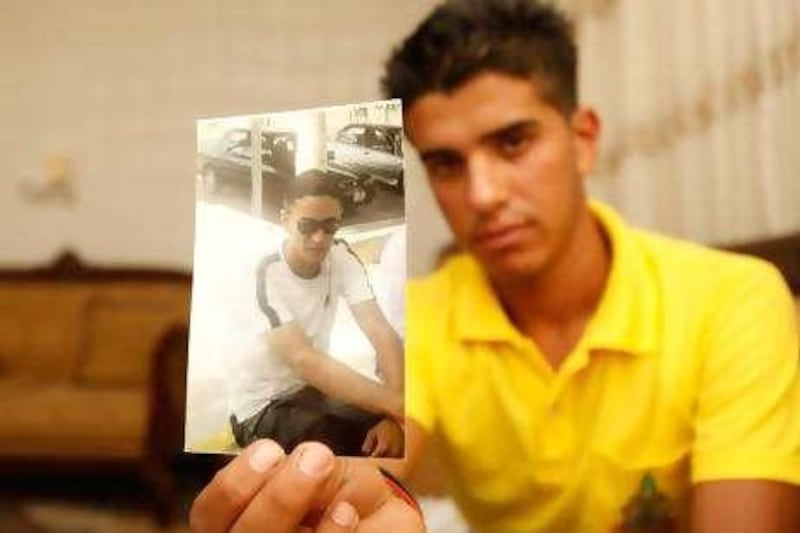AMMAN // They call it "happy gunfire". At weddings, graduations and other notable occasions, Jordanians, like other Arabs, fire their revolvers and shotguns into sky in celebration. But all too often the party stops when the bullets come down.
In the case of Hussam Nabhan, 18, a stray one struck his head as he and other students were celebrating their scores this month in the critical university entrance exam known in Jordan as the tawjihi. If Nabhan's death was a tragedy for family and friends, one consolation is the added momentum it gave to efforts to curb happy fire. The tragedy came less than a week after Jordan's King Abdullah II urged authorities to put an end to the practice, which has been illegal under a rarely enforced Jordanian law.
Following the king's pronouncement, Hisham Tal, the minister of justice, said authorities would dramatically increase the punishment for the crime, according to the state news agency Petra. The penalty for firing in other than self-defence will now be US$1,400 (Dh5,138) or three months behind bars - or both. Offenders, Mr Tal said, could also be charged with attempted murder and face up to 20 years in jail.
"We are happy now that stricter measures will be enforced," said Major Mohammad Khatib, a spokesperson for Jordan's Public Security Department, adding that "practice is worrisome and signals an underlying problem involving unlicensed weapons mostly smuggled into the country". Police have handled 106 such cases in which five people were killed and another 57 injured in the last four years. But concluding that happy fire was the culprit for such casualties can be difficult.
While a 65-year-old man slept on the roof of his home in nearby Zarqa to escape the evening heat, a bullet pierced his chest. When he woke from the pain, however, his sons at first thought that he was having a heart attack. Only when physicians spotted the hole in his chest did they realise he had been shot. The man died from his wounds, local media reported. Through public education campaigns and stricter enforcement, Major Khatib said, the problem of happy fire can be addressed at its source - that is, by convincing people to stop shooting in the first place.
That is easier said than done, however. Festive shooting is deeply entrenched in Jordanian society. The centuries-old tradition dates back to when tribes, having no other means to communicate over distances, would fire guns to announce a wedding or to display a show of power. Citing haphazard enforcement of existing laws, some people here are also skeptical that the new measures will have an impact because the practise is deeply rooted in Jordanian society.
"You cannot convince citizens to forgo festive shooting when some officials give out guns as gifts when they are trying to garner political support," said Mohannad Mubaidin, an associate researcher of Arab history at the University of Jordan. "Officials should refrain from doing this, and penalties involving celebratory shooting should be enforced to the letter. There are people who are not used to respecting the law," he said.
Nabhan's family, receiving condolences at their home in Shajara, a small town in the city of Ramtha, north of Amman, has only started coming to terms with his death. He was a good student, interested in science, they said. "We had lunch with his family when he passed the tawjihi," Ahmad, his 19-year old cousin, said in a state of disbelief. "He was going to have his graduation party the next day. "He was going to get his driver's licence. He was so excited about it." @Email:smaayeh@thenational.ae





